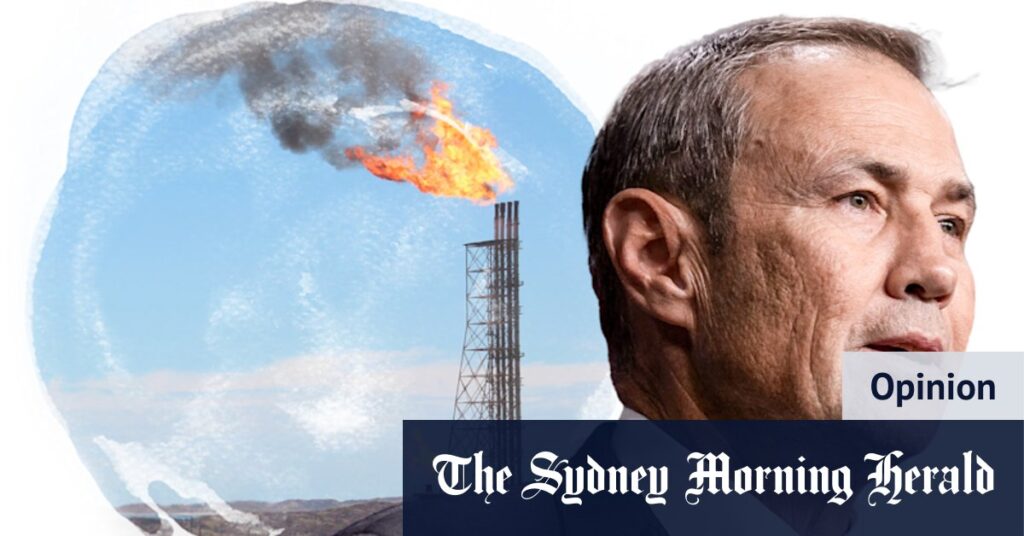
Premier Roger Cook has made a bold statement: gas is beneficial for the world, “even if it doesn’t make a good hashtag or look good on a bumper sticker.” This comment comes on the heels of a significant decision to extend the life of Woodside’s North West Shelf project, Australia’s largest gas venture, until 2070. The extension promises to secure billions in gas-related investments, potentially shaping Western Australia’s economic future long after much of the world transitions away from fossil fuels.
The message from the state government is unmistakable: Western Australia (WA) is doubling down on gas. However, for many residents, this strategy feels like a high-stakes gamble with uncertain outcomes. While energy giants and shareholders might reap the benefits, the risks for households, small businesses, and the state’s long-term prosperity are becoming increasingly apparent.
Economic Implications of the Gas Extension
WA Premier Roger Cook has emphasized that the state is well-positioned to capitalize on the burgeoning carbon storage industry. Yet, the decision to extend the North West Shelf project has raised concerns about repeating past economic mistakes. When the mining boom collapsed around 2014, the repercussions were felt across the state. Perth’s housing market plummeted, fly-in fly-out jobs vanished, and state revenues experienced a sharp decline. The economy, heavily reliant on global commodities, suffered when prices fell.
Now, a similar pattern seems to be emerging. As a major player in the gas industry, WA exported 47 million tonnes of LNG last year and supplied approximately 60 percent of Australia’s gas. Despite these vast reserves and a 15 percent domestic reservation policy, local households are still facing rising gas prices. This increase is driven not by local scarcity but by exposure to international markets.
Historical Context and Current Challenges
The reliance on gas mirrors WA’s historical dependence on mining, which has proven to be a double-edged sword. While the mining sector brought prosperity and jobs, it also exposed the state to the volatility of global commodity markets. The current focus on gas raises questions about whether WA is setting itself up for a similar cycle of boom and bust.
Experts warn that the state’s economic strategy could lead to vulnerabilities. Dr. Jane Thompson, an economist at the University of Western Australia, notes, “The extension of the North West Shelf project is a significant investment in fossil fuels at a time when the global trend is moving towards renewable energy. WA risks being left behind if it doesn’t diversify its energy portfolio.”
The Global Energy Transition
As countries worldwide accelerate their shift towards renewable energy sources, WA’s commitment to gas could place it at odds with international trends. The International Energy Agency (IEA) has projected that global demand for fossil fuels will peak in the coming decades, with renewables expected to dominate the energy landscape by mid-century.
“The world is moving towards cleaner energy solutions, and investments in fossil fuels are becoming increasingly risky,” says Dr. Thompson. “WA’s focus on gas could limit its ability to adapt to these changes.”
Future Prospects and Strategic Considerations
The decision to extend the North West Shelf project until 2070 underscores a strategic bet on gas as a cornerstone of WA’s economic future. However, this approach requires careful consideration of the potential risks and rewards. The state government must weigh the immediate economic benefits against the long-term implications of remaining heavily reliant on fossil fuels.
Looking ahead, WA faces a critical juncture. The state has the opportunity to leverage its natural resources to support a transition to a more sustainable energy economy. This could involve investing in renewable energy projects, enhancing energy efficiency, and developing infrastructure for carbon capture and storage.
Ultimately, the path WA chooses will have lasting consequences for its economic resilience and environmental sustainability. As the global energy landscape evolves, the state’s ability to adapt and innovate will be crucial in determining its future prosperity.
The decision to extend the North West Shelf project represents a significant commitment to the gas industry. Whether this will prove to be a strategic masterstroke or a risky gamble remains to be seen, as WA navigates the complexities of a rapidly changing energy world.







